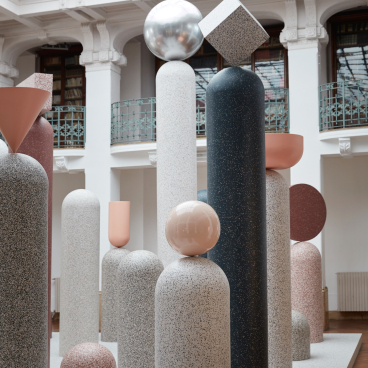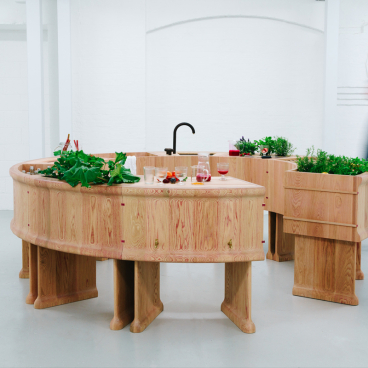Ehab Sayed of Biohm on sustainable materials, growing mushrooms that eat plastic and changing the industry

If you could single-handedly change anything about the world, what would it be? For Ehab Sayed, founder of Biohm, he's taking on the entire construction industry.
He wants to make it more sustainable. To shake up the entire system and remove inefficient processes and damaging materials wherever possible. Basically, to save the planet for generations to come. How? By developing bio-based materials to replace existing synthetic ones and ensure a healthier future for us all.
Right now, he's in the lab developing these carbon-neutral, if not carbon-negative materials, some of which he's discovered can devour things like plastic, of all things.
From plant-based concrete to mushrooms that insulate and cut costs for the entire industry, we spoke to Ehab about all this and more.
How did Biohm come about?
It started as a research project looking at the waste streams in the UK and what's causing them. And it was the construction industry that came out with the most shocking figures. It made me focus on that and try and find a way of improving resource efficiency there.
There were so many issues that caused the waste problem that it was really difficult to pinpoint exactly where the solution could have an impact. The deeper you dive into it, the more you realise that there's fragmentation in every area of the industry. Processes are not standardised. Digital communication hasn't integrated into the industry quite yet.
That's when I realised that the best way to address this is to develop a physical product. Something that also changes perceptions and has a potential impact on policy and regulation as well.
And so I developed a construction system called Triagomy, which I took to the industry for feedback and architects and contractors said that we must take it to market immediately.
That's when I patented the system. However, I quickly realised that all the materials I planned to use didn't exist or weren't readily available. So we started to develop our own materials in order to tackle the issue properly and develop something that meets our very militant sustainability requirements.
So we brought on board a team of developers, designers, engineers and scientists to begin our material development journey. And that's where are now.
Wow. That's a huge ambition. Is there anything you can't do?
[Laughs] Well, we are trying to change everything and innovating on every front. And that isn't the wisest approach when you're starting a business. So we decided to put Triagomy on hold, for now, so we can focus exclusively on our material development. It's where we can have the most impact immediately and offers the quickest route to market.
The idea is that we create our materials over the next two years until they're ready and in that time Triagomy will be developed in-house, in the background, so when it's launched our materials are ready for it.
That's amazing. How has the construction industry reacted so far?
I think it's interesting to see how open and accepting the industry has been of what we do. Because when I was starting my research, I just thought it was going to face a lot of criticism and conservatism.
But what we realised was that everyone understands all the industry's problems. Everyone is dying for things to change and be more sustainable. Even those supposed "evil companies" that everyone assumes don't care about the environment, you go and speak to their directors and CEOs and they are actually trying but it's such a big machine to change that it's very challenging. Because unless you compromise profits for a while, it's always going to be difficult. The capitalist business system the world operates in, it doesn't allow for such changes to happen, sadly.
It's almost like everyone's got their hands tied and are waiting for a solution to just come their way. We manage to offer a solution that still keeps their profit margins nice and healthy whilst having enough of an impact to make positive change.
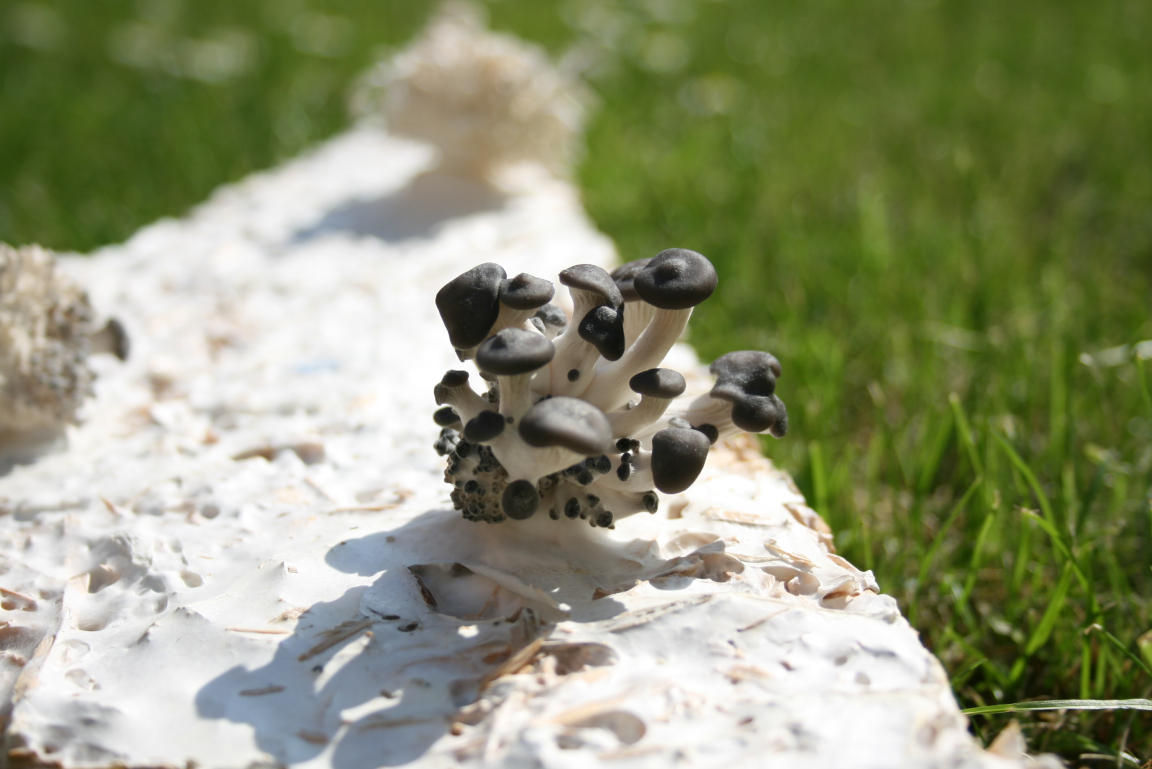
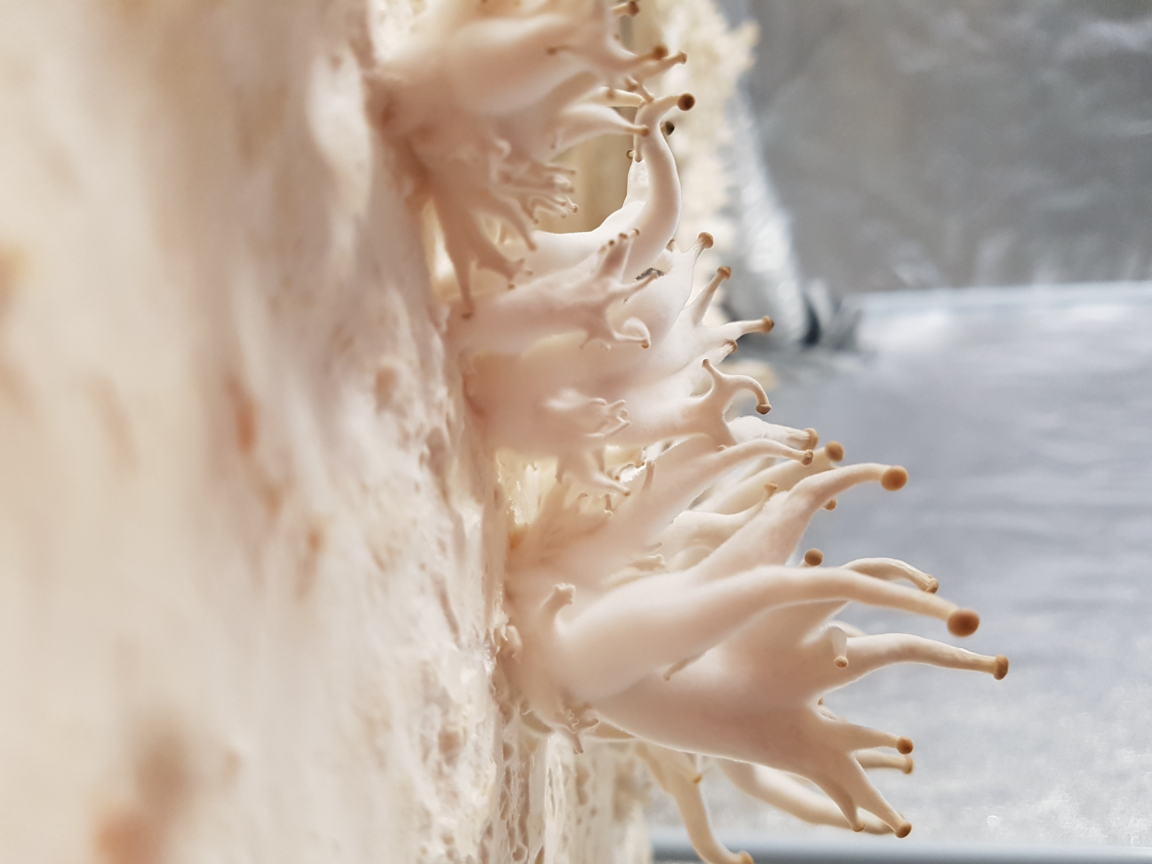
It seems like you've found the right approach, then. Finding replacement materials as a first step?
More than anything, when you're innovating in an industry that doesn't innovate regularly, certainly not in the mainstream, you need to ensure that what you're offering will fit into what's normal practice, seamlessly.
And that's something that's really important to us with our materials. In that, they're not only superior in performance and sustainability but they're just as affordable – if not cheaper – than synthetic alternatives.
With this approach, it becomes a no-brainer for the construction industry. Because it's not going to cost them more. It's not going to mean they have to train their workers differently. It's about being empathetic with what has always been seen as the "bad guys".
What do you see these materials being used for?
With our product Mycelium, we are focusing on installation. We're currently going through the testing and accreditation process. Which has actually been very challenging. We know our materials are superior to existing products out there.
But in order to get the accreditation, we have to meet industry standards, which are built for synthetic materials and the criteria simply doesn't apply to more natural materials. For example, you can't measure certain chemicals in our materials because we don't use them.
It's been a really interesting journey. We've certainly discovered that as much as industry standards can be a driver for quality and sustainability, they can equally hamper innovation.
So we're working with the British Standards Institution to look at crowdfunding a new standard that allows bio-based materials into the industry. Until then, we'll just have to try and get accreditations under the current system.
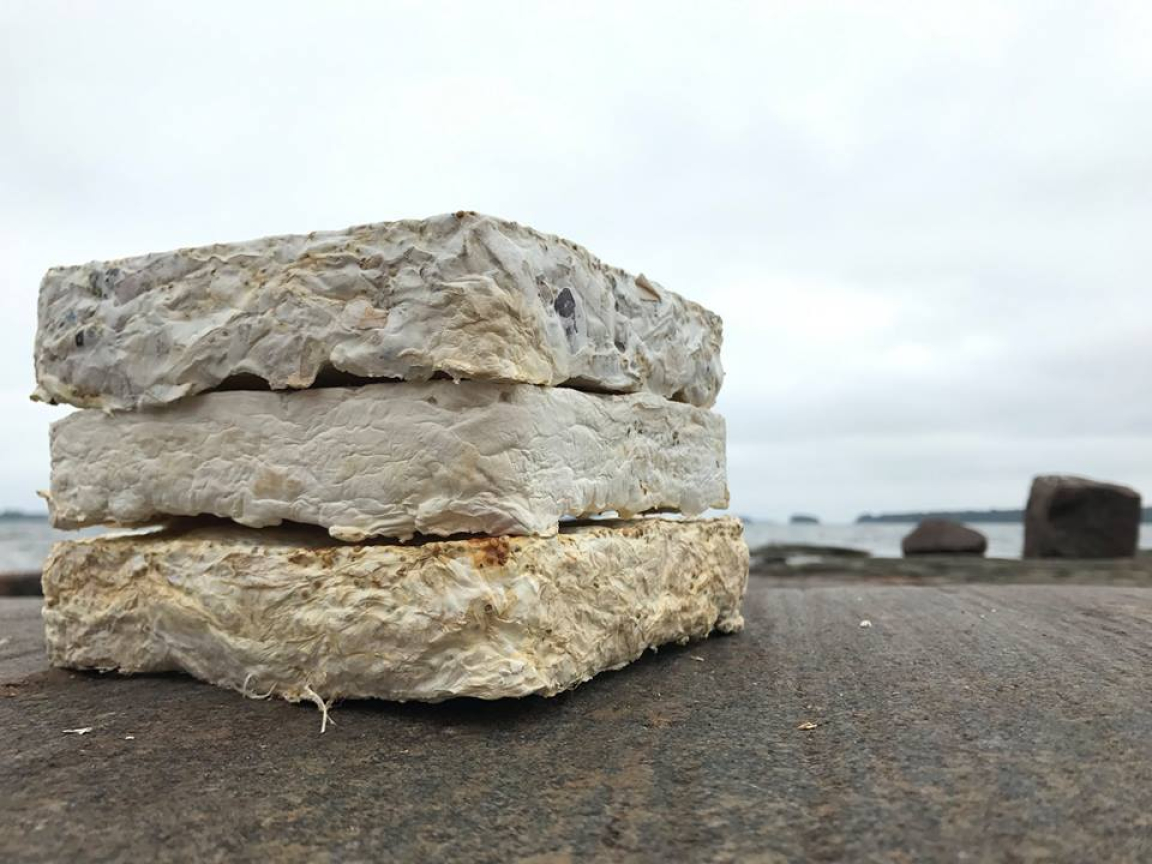
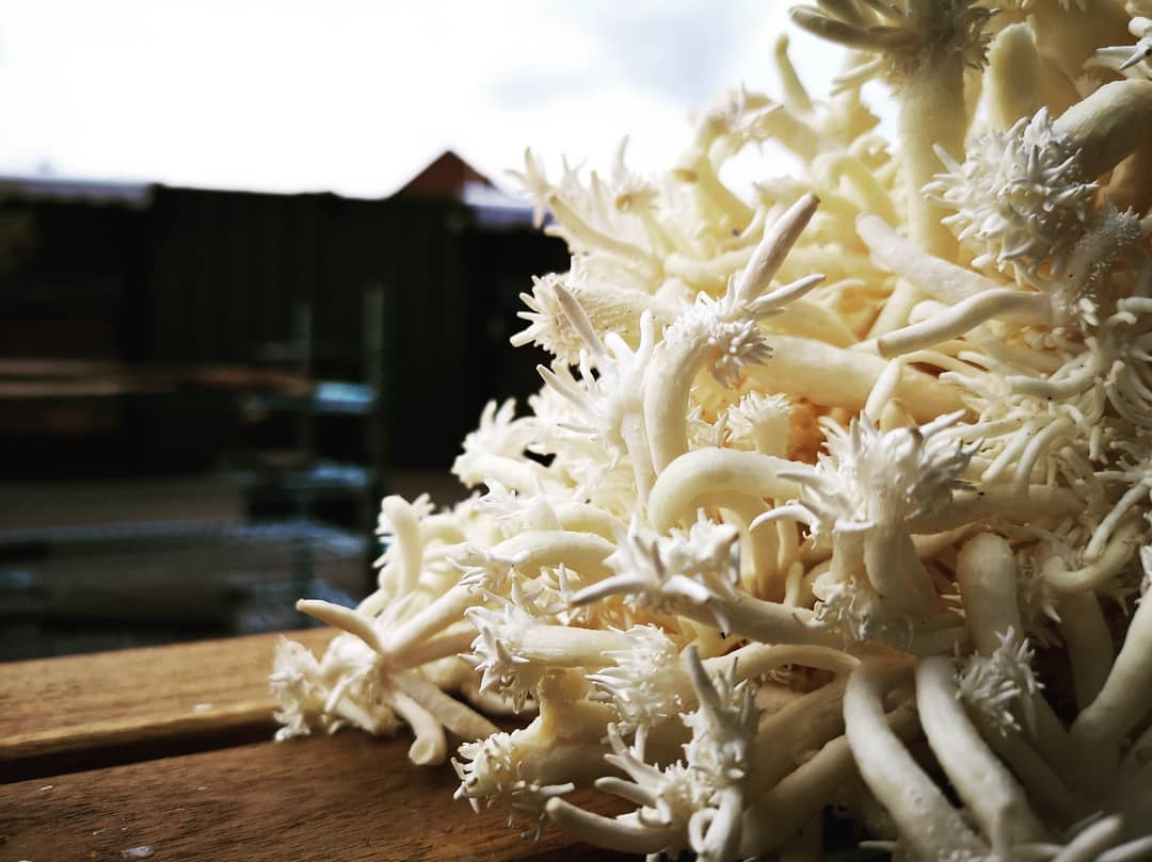
Can you describe some of your materials?
Of course. Mycelium is a mushroom-based material. You can think of it as the roots of a mushroom. It's the vegetative part. We introduce it in a mould where we've got agricultural and even synthetic waste and the mushroom starts to grow and feeds on the waste, which fills the mould.
We then kill the Mycelium and it turns into an excellent insulating material. It's self-extinguishing as well, so it meets all the fire safety requirements. It's also hugely energy efficient.
How on earth do you come up with something like this?
[Laughs] Mycelium has actually been used for hundreds of years. Ancient civilisations used it to mend trees and to mend their buildings. In America, there's a company that's been using it for its packaging since 2006.
I've been a fan of Mycelium my whole life and believe mushrooms are truly wondrous organisms with significant untapped potential. When I realised it was being used for packaging, I thought it must be a good material for insulation, too. That's when the whole conversation started.
What have you found to be the most surprising?
From a technical perspective, it's Mycelium's ability to break down different types of waste and complex waste, too. We had an accident in the lab once, where we dropped a plastic sponge into the Mycelium, which it began to eat. It completely consumed it. We cut the Mycelium open and we found no remnants of the plastic sponge left.
It breaks it down into very simple compounds and then concentrates the carbon in the fruit which is the mushroom. It's basically the most efficient way to recycle waste using biological organisms. That "accidental" discovery has led us onto a whole new journey of research on bio-recycling. Especially mixed plastics, which are impossible to recycle using Mycelium.
So you've basically discovered a way to solve the global plastic crisis by having an accident in a lab?
[Laughs] That's something we'd love to achieve. But it's still very early days. We're looking at around two years of hardcore research just to be able to make it commercially viable. But yes, we've potentially found a way to recycle plastics with natural, biomaterials.
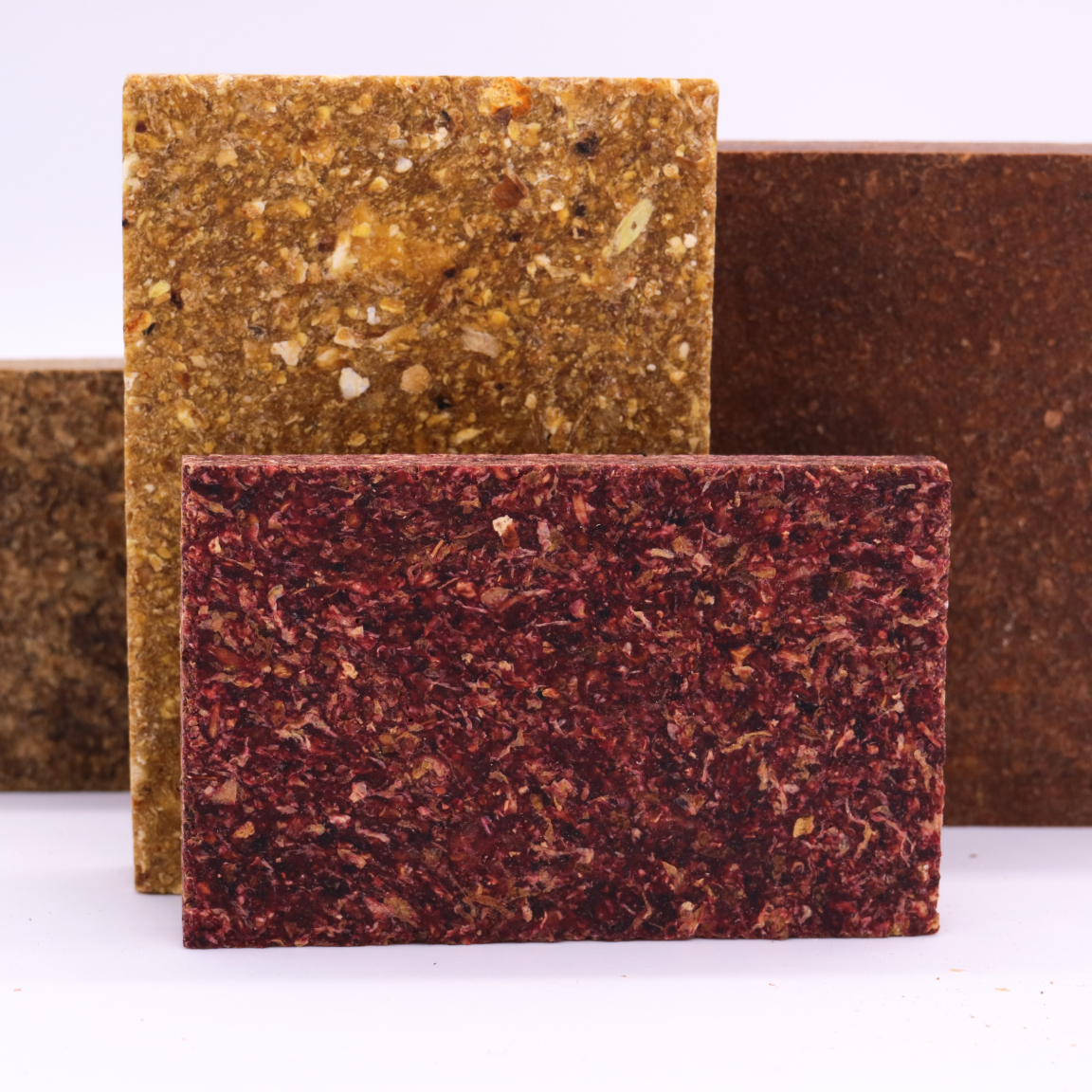
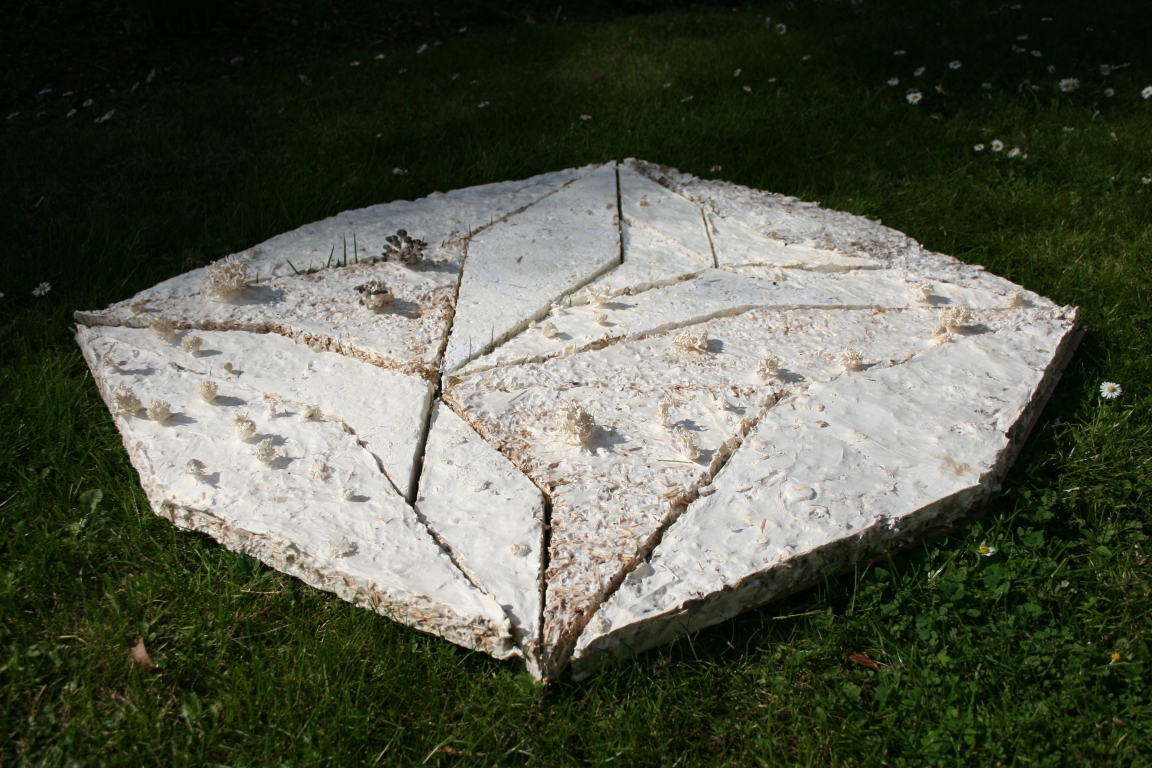
I'm assuming you have to be quite patient to embark on a journey like this?
Absolutely. Everyone knows how rigid and conservative the construction industry can be. There are so many perceptions and barriers that you need to overcome, too. Because the first thing people might say is, why would I put mushroom, mould or fungus in my walls? You know, something you'd normally get rid of.
But we've seen through recent events in the construction industry that our choice of materials is becoming more important. People are more aware of them. Especially sustainable alternatives. So the industry is changing and the barriers are slowly coming down.
There's a growing understanding of the urgency for change. Regulations and European Union targets are getting stricter. Companies are having to scramble around to meet those targets and stay in business. It's why we're encouraged and can see increased demand for biomaterials.
In that case, do you feel hopeful about the future?
Very much so. If you asked me that question even two or three years ago, I'd have felt differently. But now we're seeing really large firms taking action. We're seeing consumer behaviour completely shifting and changing.
And even people who didn't believe in science are starting to warm to the idea that we're in a global state of emergency and we need to take serious steps to save our planet. I'm definitely very hopeful and know we're on the right track.



